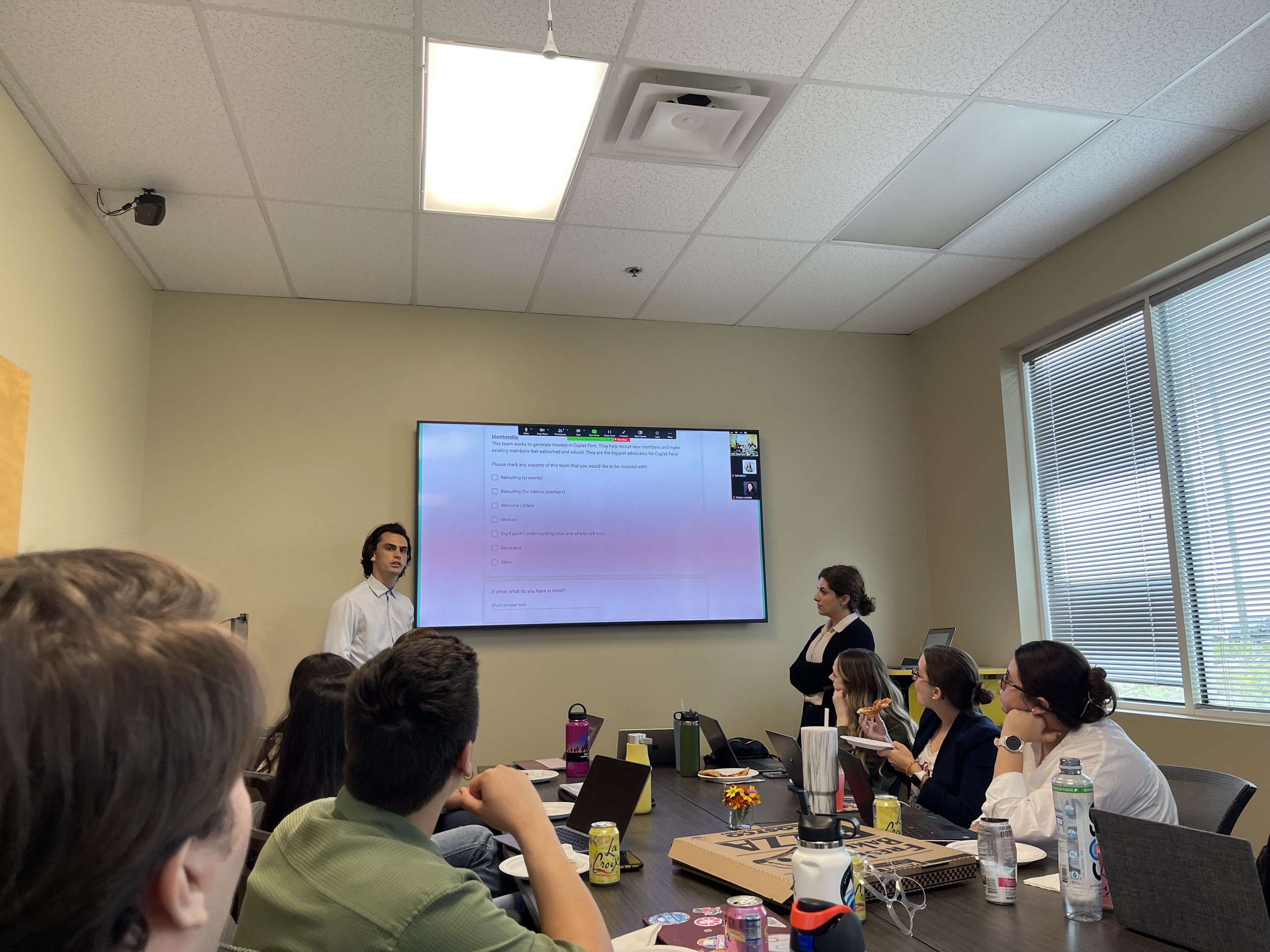CF in the Industrial - Organizational Psychology Classroom
Sara Motahari
This article shares the first-hand experience of Sara Motahari, one of the students involved in a collaborative class project with Cuplet Fern leadership hosted by Dr. Chelsea LeNoble at UCF.
Dr. LeNoble’s class and Cuplet Fern leadership
Excitement filled the room as we eagerly awaited to meet our special guest for the class project - the president of Cuplet Fern. With treats for everyone and souvenir plant seeds from Cuplet Fern, his entrance was the perfect start for an exciting experience. As he began to speak about his organization and the challenges they faced, his passion and enthusiasm for Cuplet Fern became evident. It was as if he was sharing the most important part of his life with us.
From the beginning, as students, we were intrigued by the purpose of our presence - to comprehend the company's challenges and devise innovative solutions under our professor's guidance. It initially began as a straightforward class project; however, the president's genuine dedication motivated us to view it with greater significance. We felt compelled to find a solution that could genuinely create a positive impact on a company that holds significant importance in relation to the environment we deeply care about.
Our engagement with the president did not end with the class session. Throughout the semester, we eagerly reached out to other members and leaders in the organization, who also proved to be caring about their work and willing to share valuable information. Immersed in our class project, I couldn't shake the feeling that it held potential far beyond the boundaries of academia. Cuplet Fern became our canvas, and we embarked on a journey to uncover its inner workings. Attending meetings, events, and engaging with members with various responsibilities, we began to understand the heart of this organization. Enthusiasm ran high among the members, but we couldn't ignore the complexities arising from their roles. It was evident that a slight structural adjustment could unlock their true potential and foster a sense of autonomy among team members. We wanted them to feel empowered, capable of making decisions and taking action, without relying heavily on the president’s direct intervention. It was a journey of fostering self-reliance and instilling trust in the capabilities of each team member so that the strengths and skills of each leader could shine through.
The team at work
Our discussions with the president and other leaders in the organization fueled our determination to seek practical solutions. The first step was a concise handbook that reflected the core values of the organization, clarified policies and roles, and acted as a guide for both new and existing members. We knew that clarity was key to empowering their journey. Additionally, we set out to redefine the organization's structure, offering tailored entry points for newcomers based on their passions and skills. This approach stirred newfound motivation among the team, as they embraced roles that resonated with their strengths.
But we didn't stop there. We recognized the need for departmental leaders who could steer their teams with autonomy and confidence. Suggesting training simulations, we aimed to nurture these leaders, encouraging them to make informed decisions and shape their respective departments. This was designed to not only ease the president's workload but also ignite a sense of belonging among the leadership team.
The presentation day arrived, and multiple student teams showcased their proposals, including ours. The Cuplet Fern team was all ears, open and eager to learn about how each solution could help them improve their organization. Their genuine interest and appreciation for our efforts showed us how much they valued our hard work and dedication.
This remarkable collaboration between education and industry allowed us, as students, to nurture valuable skills and gain a broader perspective. Such an opportunity would not have been possible without the open-minded and adaptable approach of Cuplet Fern's leaders, which instilled a deep sense of trust in us.
This type of hands-on, community-partnered experience is not always common in educational programs. We had the opportunity to practice skills such as client communication, researching solutions tailored to the needs of a specific organization, developing ideas that account for unique organizational constraints, and delivering client-facing presentations. Overall, we learned important insights that will carry forward into our careers and help us become stronger Industrial and Organizational Psychology practitioners.



